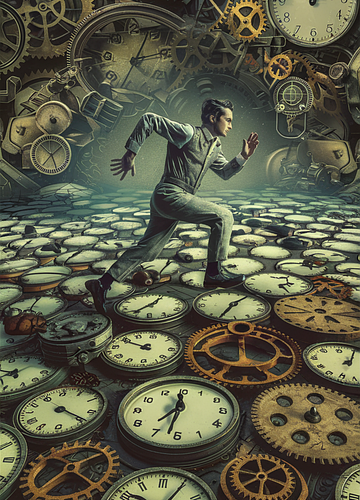In his book How Economics Explains the World, author Andrew Leigh describes events that affected the course of world history. These range widely from discussions on Slavery to Climate Change; from War to Artificial Intelligence. In each case the author tries to draw on economic theory to explain why historical events occurred the way they did. The result is a compendium of interesting titbits.
For example, Leigh points out that the plough was the most important invention that kicked off the agricultural revolution. This permitted the production of food surpluses and establishment of permanent settlements but also came with downsides such as less diverse diets and increased susceptibility to infectious diseases.
He reminds us that living standards barely changed in the seven hundred years to 1700. The Industrial Revolution changed all that. The day after James Watt’s first profitable steam engine entered the market, Adam Smith published his famous treatise The Wealth of Nations. And soon after, political revolutions occurred in America and France.
Leigh discusses how items we consider trivial today – mirrors and clocks – changed society in their day; why gridded cities produced the first skyscrapers; how a slaughterhouse inspired the factory assembly line; how the imposition of import tariffs prolonged the Great Depression; why democracies with a free press are extremely unlikely to suffer a famine; and how the COVID pandemic caused our current bout of inflation.
Leigh’s book has the subtitle “A Short History of Humanity”. This claim makes it a hard book to characterize. It is part Freakonomics (subtitle: The Hidden Side of Everything, 268 pages), part Sapiens (subtitle: A Brief History of Humankind, 512 pages) and part Guns, Germs and Steel (subtitle: A Short History of Everybody for the last 13,000 years, 580 pages).
Compared to these ‘short’ books it is even shorter coming in at 240 pages. The result is a narrative that bounces around leaving the reader hanging at times, and with the economic and historical threads very thin on occasion.
Leigh aimed to “tell the story of how capitalism and market systems emerged; discuss the key ideas and people who shaped the discipline of economics; and outline how economic forces have affected world history”. In this he only partially succeeds.
So even though How Economics Explains the World is not the most cohesive of narratives, it does offer an easy-to-read, if incomplete, history. The book contains a multitude of anecdotes that may prompt the reader to embark on more complete readings if they wish to explore some events more fully.
The reviewer is a co-author of Court of the Grandchildren, a novel set in 2050s America.
Main image credit: Maksymchuki via Pixabay
For posts on similar themes, consider:
